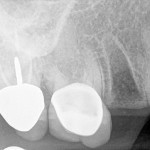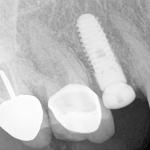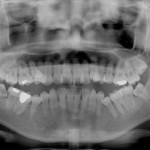By Arthur Kezian
Auto accidents, falls, and wounds from sports activities like baseball, basketball, hockey, football, soccer and volleyball can cause severe facial and dental trauma. Proper assessment and treatment should be given to patients distressed with major skull, neck or injuries on the face. These injuries may result in patients suffering from temporary memory loss, fainting, and severe aching of the head or ears, nose or ear bleeds, confusion and shock and could involve jaw or head fractures which would require treatment in emergency rooms. Emergency rooms can also perform dental extractions.
Breaking of the tooth may result either from wearing away of cavities or from mastication of solid and tough things like candies, cubes of ice, hard nuts and even chewing unusual things like pencils. An emergency dentist in a dental office can treat minor dental damages like a cracked tooth, or teeth completely dislodged from the mouth due to some sudden force which do not involve skull or neck injury. Inflammation of the gums and tissues of the mouth may result from such dental mishaps. On the way to an emergency dentist, the ache and inflammation can be lessened by the application of ice or cold packs outside the injured area or inside the mouth just above the wounded tooth.
What treatment will be given to my injury?

 Most dental injuries are chipping of teeth. Wounds involving complete removal or dislocation of teeth are not very common. The nature of injury, the place and gravity of injury are taken into account in order to give the treatment. To avoid an injury going unnoticed, especially a tooth next to the damaged tooth, a careful assessment of the mouth by a dentist or endodontic specialist is required even for a small injury. Such examinations can be carried out by an emergency dentist.
Most dental injuries are chipping of teeth. Wounds involving complete removal or dislocation of teeth are not very common. The nature of injury, the place and gravity of injury are taken into account in order to give the treatment. To avoid an injury going unnoticed, especially a tooth next to the damaged tooth, a careful assessment of the mouth by a dentist or endodontic specialist is required even for a small injury. Such examinations can be carried out by an emergency dentist.
Dental injuries can be classified into two types. When a tooth is totally dislodged from the socket, it is called an avulsed tooth. In case of such an injury the tooth should be picked by the crown and never by the roots, instantly put into a plastic jar filled with saliva, saline solution or even whole milk. In case the injured person is alert and conscious and is old enough to follow instructions, the tooth can be kept under the tongue. The best chance of saving the tooth is up to two hours. A sportsperson suffering an avulsed tooth can consult an emergency dentist.
A tooth that has not been entirely dislodged but loosened from the socket and can move back and forth and even sideways is called a luxated tooth. The sportsperson with such an injury should get the tooth pushed back in place by your dentist.
An examination will be carried out once the tooth has been pushed back in place to rule out injuries to the neighboring teeth or even the face. A support will be placed for a couple of weeks. Within a week or two, judging by the development of the root, the dentist or endodontic specialist may perform a root canal treatment. The root canal is filled a few days after the tooth is treated with some medication.

Since the teeth of children in the age of 7-12 are still developing, they may not require a root canal treatment. The healing process is observed carefully by a root canal specialist who will act immediately in case they notice adverse outcome. Treatment requires several appointments for follow-ups. Infections or injuries can be completely healed in young people as research show the presence of stem cells.
The layers involved in root fractures, which are quite frequent, classifies the four types of root fracture.
A horizontal fracture of the root may be an outcome of a distressing injury. Success rate of healing depends on the proximity of the fracture to the gum line which if close by would have a lesser chance of success. The closer it is to the root tip, the better its chances of healing. A support may be provided for a short time period.
Dental injuries can be avoided by using protective gears in good condition. Sports practices should be with mouth guards. A sportsperson with dental problems should always wear a mouth guard. In cases of emergency and dental trauma please call Dr. Kezian’s office to set an appointment.
Dr. Arthur A. Kezian DDS 443 N. Larchmont Blvd Los Angeles, CA 90004 (323) 467-2777
